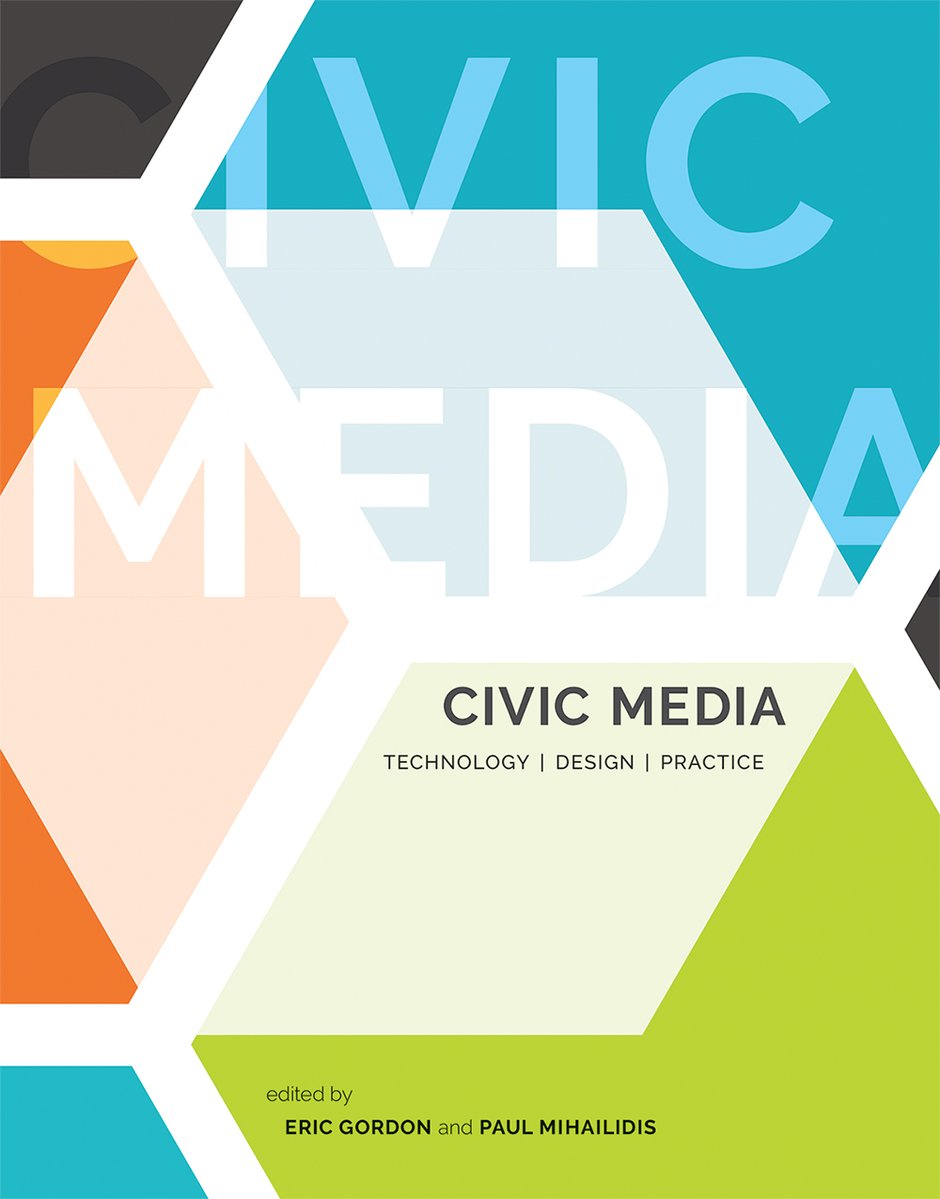Engagement Lab Looks to Lead Field of Civic Media

The Emerson Engagement Lab is poised to define the field of civic media, with the launch of a faculty-edited book on the topic next week and the awarding of a grant from the MacArthur Foundation to study civic media “ecosystems” in three U.S. cities.
The book, aptly titled Civic Media, was published in June, but the official launch will be held Wednesday, November 16, 5:30 pm, at the Berkman Klein Center for Internet & Society at Harvard Law School’s Wasserstein Hall.
“Part of what we’re doing with the book is establishing [civic media] as a recognizable practice,” said VMA Associate Professor Eric Gordon, founding director of the Engagement Lab and, with Marketing Communication Associate Professor and co-director Paul Mihailidis, co-editor of the book. “I think it’s noteworthy that the MacArthur Foundation has established a funding program in civic media…. There’s an effort to understand what these practices are.”
Civic Media is a collection of essays and case studies written by academics and practitioners that together try to “draw a circle around a set of practices” that use technology and social media to effect social change, Gordon said.
The authors look at different ways to think about media use, from large-scale activism to smaller efforts, to creating technology around a specific project or goal. The book even represents low-tech efforts with a chapter about the Flat Stanley Project, wherein kids send a paper Flat Stanley to someone of interest (politician, celebrity, family member, etc.), and that person sends back a photo, some souvenirs, and a journal entry from Stanley’s “trip.”
“It’s happening on multiple levels, and we want to help create the language to talk about it,” Gordon said.
Gordon contributed an essay on “Meaningful Inefficiencies,” which uses a game design model to look at using technology to create “space for play,” instead of the efficiencies that technology is generally expected to produce. Mihailidis wrote about media literacy and its role in civic projects.
Five authors from the book, including scholars from Tufts University, Simmons College, the University of Waterloo, and MIT’s Center for Civic Media, will attend the launch on November 16 to advance the conversation about civic media.
Four of the five visiting authors are local, a result not just of geography, but of the fact that Boston is kind of a hub for emerging work in civic media, Gordon said. In addition to the Engagement Lab and the Center for Civic Media at MIT, there is a “huge amount” of work going on in many Boston universities. The Mayor’s Office of New Urban Mechanics is one of the first municipal offices in the country devoted to using technology to improve quality of life for residents, and Microsoft has a civic tech unit run out of the NERD Center to support this kind of work.
With the MacArthur grant, the Engagement Lab is looking at sustainability of civic media practices in urban environments, said Gabriel Mugar, research project manager at the Lab.
“People can talk about something like Occupy Wall Street or Black Lives Matter, and they can talk about how Twitter is used to bring people together,” Mugar said. “But what we’re interested in is how did people who are making decisions use different tools to bring about support, to think about strategy…. What were the decision-making philosophies around that? What were the kind of routines that emerged around the use of social media in [movements or programs]?”
Mugar and a team including graduate students in the Civic Media: Art and Practice program will look at organizations in three yet-to-be-finalized American cities (Boston is a pilot, however). They will compare the practices of “legacy” organizations that have been working in the civic sphere for decades and are coming to social media and technology later in the groups’ missions with those of newer, less formally organized groups, he said.
In June 2017, the Lab will bring members of the groups to Boston to give feedback on their analysis and talk to each other about the “different conditions they believe are integral to supporting their work,” he said.
A final report is due to the MacArthur Foundation in August 2017. Mugar said the project will give direction to the Lab, as well as to the foundation and the study participants.
“In addition to us defining and exploring important questions in the field of civic media, we’re also using this work to define new research trajectories for the Lab,” Mugar said.
Categories